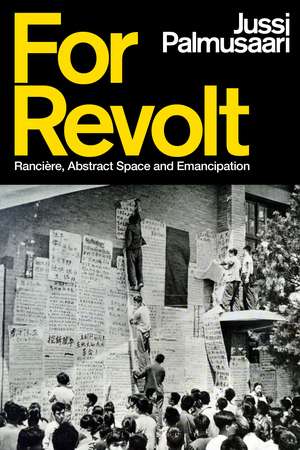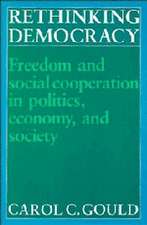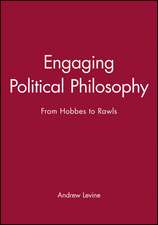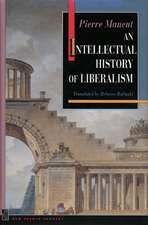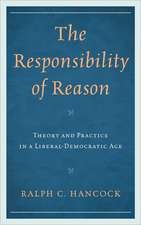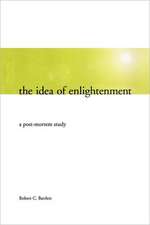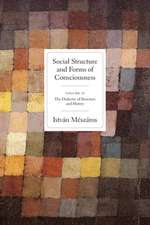For Revolt: Rancière, Abstract Space and Emancipation
Autor Jussi Palmusaarien Limba Engleză Hardback – 13 dec 2023
Preț: 510.83 lei
Preț vechi: 731.44 lei
-30% Nou
Puncte Express: 766
Preț estimativ în valută:
97.74€ • 102.33$ • 80.88£
97.74€ • 102.33$ • 80.88£
Carte tipărită la comandă
Livrare economică 07-21 aprilie
Preluare comenzi: 021 569.72.76
Specificații
ISBN-13: 9781350274020
ISBN-10: 135027402X
Pagini: 248
Dimensiuni: 156 x 234 mm
Greutate: 0.53 kg
Editura: Bloomsbury Publishing
Colecția Bloomsbury Academic
Locul publicării:London, United Kingdom
ISBN-10: 135027402X
Pagini: 248
Dimensiuni: 156 x 234 mm
Greutate: 0.53 kg
Editura: Bloomsbury Publishing
Colecția Bloomsbury Academic
Locul publicării:London, United Kingdom
Caracteristici
Political ideas around revolutionary thought are both perenially important in political philosophy but also controversial and it's a lively field of interest
Notă biografică
Jussi Palmusaari holds a PhD from the Centre for Research in Modern European Philosophy, Kingston University London, UK. He has worked as a lecturer at Kingston University and King's College London, UK. He has published on European philosophy and political thought, and translated German and French philosophy into Finnish and English.
Cuprins
AcknowledgementsNote on TextAbbreviationsIntroduction: Spatiality, Equality, Intelligence1. Can Rupture be Thought?2. Rancière's Literary Maoism3. Politics of Staging and the Primacy of Space4. Time and its Discontents5. The Jacobin AnachronismConclusionBibliography
Recenzii
This brilliant, stimulating and enmeshing reading of Rancière teaches us that space is the future of time. Space of the stage. Space of equality. space of democracy. Between Kant and Marx, a new way of thinking about spatialization as emancipation develops. An essential analysis.
Jussi Palmusaari's reading marks a whole new level of precision and sophistication in the reception of Rancière's work. By foregrounding his concern with the literal space of egalitarian coexistence, over any "progressive" or temporal process of liberation, Palmusaari illuminates what is so uncompromising about Rancière's conception of revolt while also illuminating some of its strategic limitations.
A probing new critical appraisal of Rancière's philosophical project, this carefully argued analysis presents his work as an emancipatory form of radical Kantianism in which spatial coexistence is privileged; this in turn sheds welcome new light on key terms, above all le partagedu sensible.
Jussi Palmusaari's reading marks a whole new level of precision and sophistication in the reception of Rancière's work. By foregrounding his concern with the literal space of egalitarian coexistence, over any "progressive" or temporal process of liberation, Palmusaari illuminates what is so uncompromising about Rancière's conception of revolt while also illuminating some of its strategic limitations.
A probing new critical appraisal of Rancière's philosophical project, this carefully argued analysis presents his work as an emancipatory form of radical Kantianism in which spatial coexistence is privileged; this in turn sheds welcome new light on key terms, above all le partagedu sensible.
